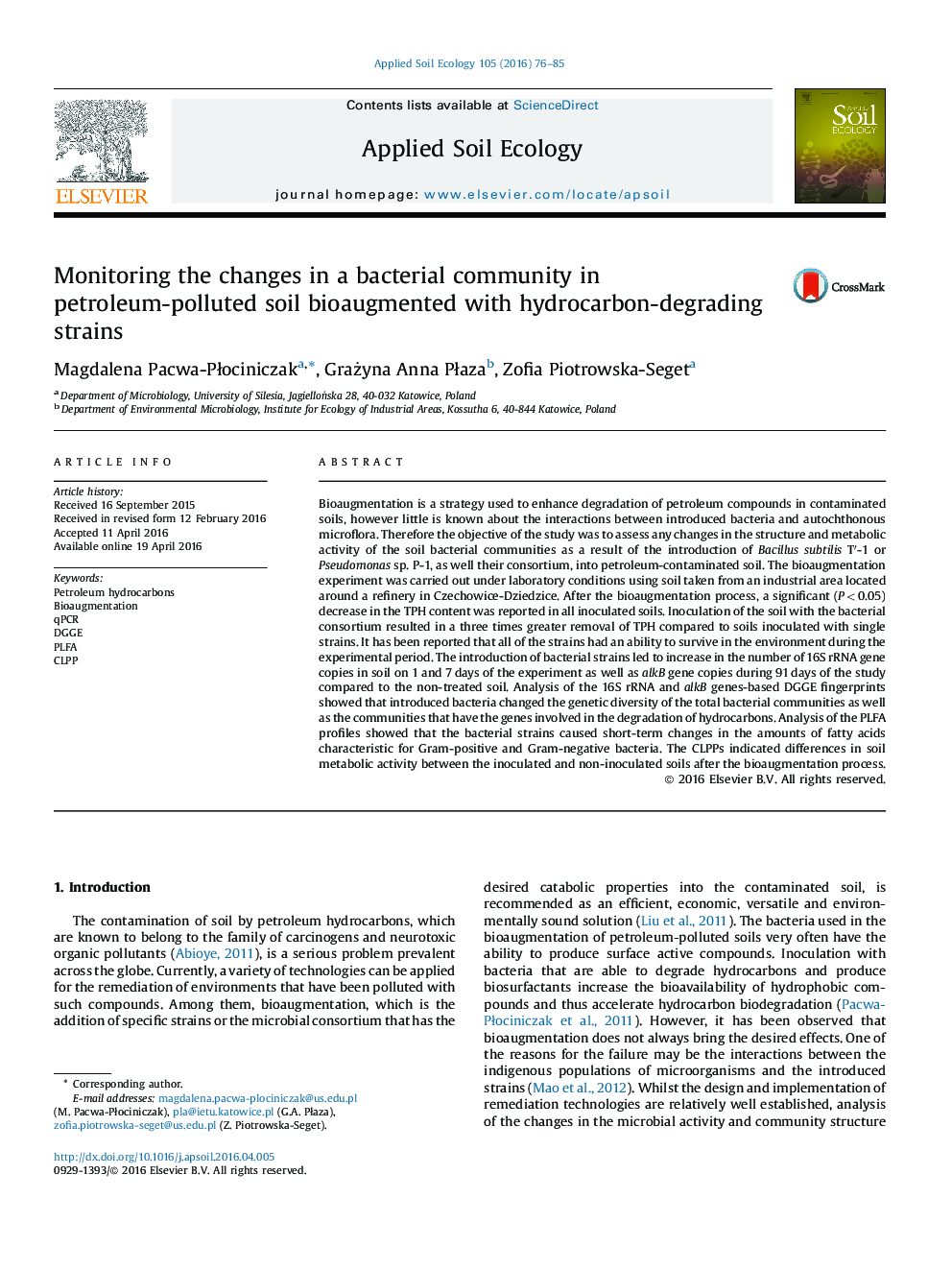| کد مقاله | کد نشریه | سال انتشار | مقاله انگلیسی | نسخه تمام متن |
|---|---|---|---|---|
| 6297748 | 1617778 | 2016 | 10 صفحه PDF | دانلود رایگان |
- Strains Tâ²-1, P-1 and their consortia enhanced TPH removal in soil.
- Introduced bacterial strains survived in the soil during experimental period.
- Tâ²-1, P-1 and Tâ²-1Â +Â P-1 changed the genetic diversity of soil microbial communities.
- Strains did not change the functional and structural diversity of soil microflora.
Bioaugmentation is a strategy used to enhance degradation of petroleum compounds in contaminated soils, however little is known about the interactions between introduced bacteria and autochthonous microflora. Therefore the objective of the study was to assess any changes in the structure and metabolic activity of the soil bacterial communities as a result of the introduction of Bacillus subtilis Tâ²-1 or Pseudomonas sp. P-1, as well their consortium, into petroleum-contaminated soil. The bioaugmentation experiment was carried out under laboratory conditions using soil taken from an industrial area located around a refinery in Czechowice-Dziedzice. After the bioaugmentation process, a significant (PÂ <Â 0.05) decrease in the TPH content was reported in all inoculated soils. Inoculation of the soil with the bacterial consortium resulted in a three times greater removal of TPH compared to soils inoculated with single strains. It has been reported that all of the strains had an ability to survive in the environment during the experimental period. The introduction of bacterial strains led to increase in the number of 16S rRNA gene copies in soil on 1 and 7Â days of the experiment as well as alkB gene copies during 91Â days of the study compared to the non-treated soil. Analysis of the 16S rRNA and alkB genes-based DGGE fingerprints showed that introduced bacteria changed the genetic diversity of the total bacterial communities as well as the communities that have the genes involved in the degradation of hydrocarbons. Analysis of the PLFA profiles showed that the bacterial strains caused short-term changes in the amounts of fatty acids characteristic for Gram-positive and Gram-negative bacteria. The CLPPs indicated differences in soil metabolic activity between the inoculated and non-inoculated soils after the bioaugmentation process.
Journal: Applied Soil Ecology - Volume 105, September 2016, Pages 76-85
